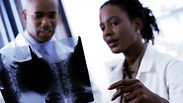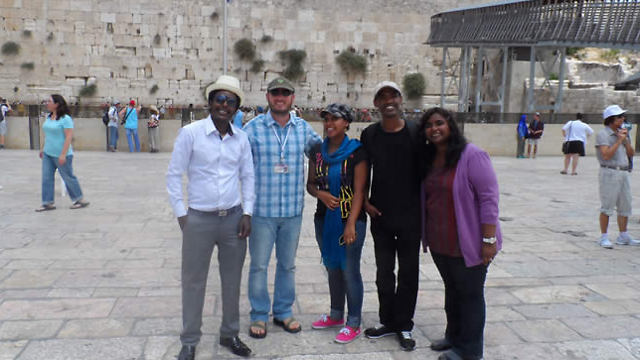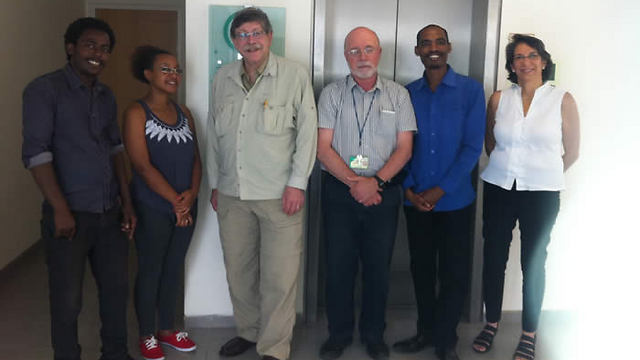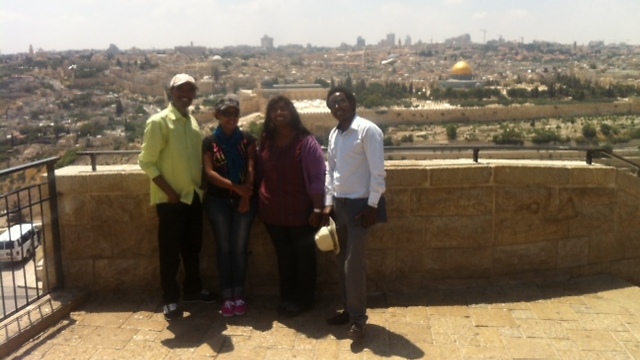
Naomi Teshome, 23, a newly-graduated doctor in Ethiopia had never seen a cardiac catheterization during her years in medical school. In her two months as a visiting student at Ben Gurion University’s School for International Health, she observed dozens of procedures, and came away with new dreams for her country.
“I’ve always dreamed of having a good medical system and it gives me so much pain to see people who can’t afford treatment,” Teshome told The Media Line. “It makes me really sad. When I see it here, it makes me want more for my country. This experience has given me more enthusiasm and commitment to work harder to see a better development of medicine in my country.”
Teshome was one of three Ethiopian students hosted by the School for International Health just before they graduated. Their teacher, Nebiyu Mesfin, an assistant professor of medicine, from the University of Gondar said the young doctors will join a profession that is suffering from a shortage of doctors.

In the past few years, he said, ten new medical schools have opened and the government is committed to training enough doctors. In the past, the most serious medical challenges were infectious diseases, communicable diseases, and malnutrition among children. Now as life in Ethiopia becomes more Westernized, new diseases are appearing.
“We are starting to see the same kind of diseases as in Western nations,” he said. “Communicable diseases like HIV and tuberculosis are more under control and diseases like diabetes, obesity, hypertension, stroke and heart attacks are becoming a major concern.”
There are also some disciplines like psychiatry that have yet to be developed in Ethiopia.

Tijabie Workye, 24, says his experience has made him realize how much work needs to be done to improve the Ethiopian medical system.
“The challenge in medicine in my country is the lack of technology,” he told The Media Line. “You may diagnose a patient with cancer or chronic liver disease but all you can do for him is palliative care. Here in Israel you can be much more aggressive and give chemotherapy.”
The Ethiopian students were studying with American students who have come to Israel for a four-year medical school program that is recognized in the US. The emphasis is on global medicine and all students spend some time in the developing world.
Mark Clarfield, the dean of the medical school, said that having the Ethiopian students on campus benefits the American students as well.
“It means there’s a back and forth, it’s not just a one-way street of us sending students to them,” Clarfield told The Media Line. “They enrich our students with what they’ve learned as well.”
The American students pay $33,000 tuition per year to study in Be'er Sheva plus living expenses. They also study Hebrew so they can interact with patients in the local hospital.

The Ethiopian students said that along with studying they were taken to visit Jewish and Christian holy sites, which was especially memorable for them. They also met some of the Ethiopian Jews living in Israel. They say they would love to return and spend more time in Israel.
For now, they are focused on starting their careers as doctors and say their experience in Israel has been formative.
“The hospitals here have amazing technologies that we’ve never come across before,” Naomi Teshome said. “We were able to see physicians using it and it was a fulfilling experience.”
Article written by Linda Gradstein.
Reprinted with permission from The Media Line .















